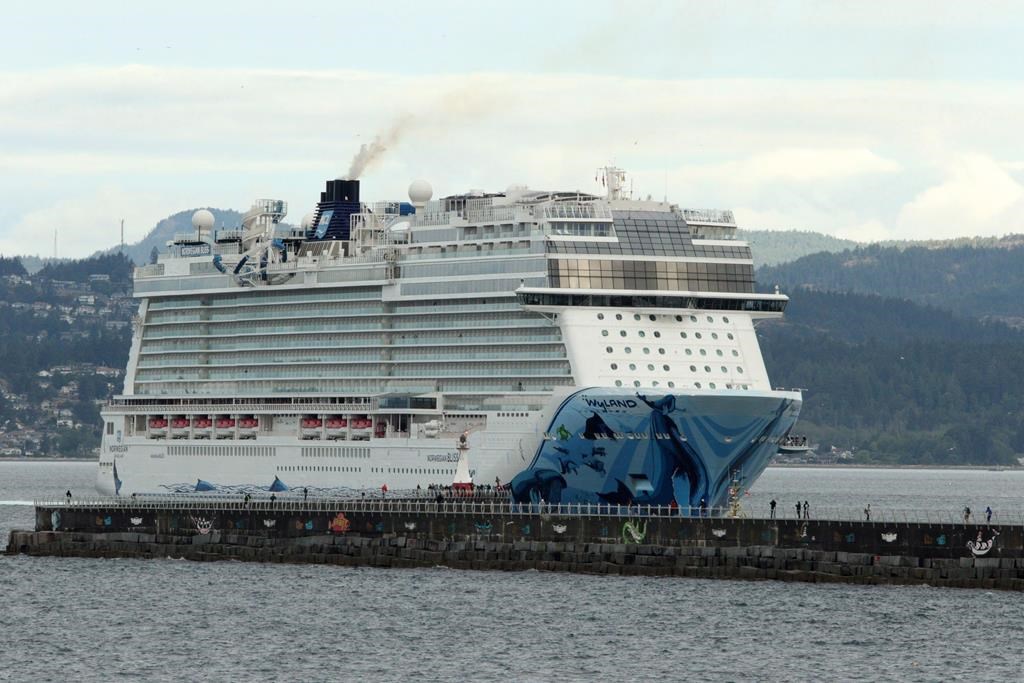The B.C. government is preparing for the possibility of running a deficit budget amidst global economic uncertainty connected to COVID-19.

Premier John Horgan says the recent drops in the stock market and drops in expected growth rates will have an impact. The province is currently projecting budget surpluses for the next three years.
“I did not want to form a government just to balance the budget. It was to deliver services for people and I said during the election campaign when those questions came that our objective was to make sure that people had what they needed to prosper and thrive in B.C. and that remains unchanged,” Horgan said.

The B.C. government relies heavily on the tourism industry to keep the economy strong. The industry has been hit hard due to the spread of the coronavirus.
The film industry has been hit in British Columbia with The Flash, Riverdale and other productions shutting down over fears associated with the virus.
“I am not misleading anybody by saying that the activity on the stock market alone has had a profound impact on a whole host of sectors. That will have an impact on revenues going forward,” Horgan said.
“So as we look at where we can find relief for people, whether it be on property taxes for small businesses or a host of other initiatives that we can look at to stimulate or at least take the pressure off, if that means that the budget will be changed then we will do that but at this point, we are going day-by-day.”

Economist Ken Peacock from the Business Council of B.C. says he has never seen such a quick decline in the economy.
Peacock says British Columbia’s economy will be somewhat protected because the province has been effective at testing people for the virus. But B.C. is in no way immune and that will effect almost everyone.

Get breaking National news
“Weak economic conditions. Widespread implications. Obvious sectors that are going to be hit the hardest are tourism, the airline industry,” Ken Peacock said.

“The impact is going to be huge. Households are going to feel this and people are going to be laid off hopefully what proves to be a temporary impact.”
Peacock says what is still unclear is how long this will go on and what the overall impact will be on the long-term health of the economy.
“The pace and speed of change is unprecedented,” Peacock said.
“The key aspect in trying to determine when we come out of this thing and if we can recover is how how widespread this becomes.”

Many of the hospitality sectors are seeing major loses due to fears of gathering in public.
Zambri’s and Big Wheel Burger co-owner Calen McNeil said they have seen a big drop in group events, which is having an effect on the bottom line.
“We have lost probably $30,000 in the last couple of weeks on private parties.” McNeil said.
“There is a lot of insecurity and people are unsure what to do either because of a lack of information or because of a clear definitive message.”
B.C. Provincial Health Office Dr. Bonnie Henry is encouraging British Columbians to go to restaurants and enjoy the outdoors. She says there are no safety concerns around eating in public.
Dr. Henry says outdoor activities are also very safe.
But McNeil says it’s a challenge to calm everyone’s nerves.
“The biggest thing is just to keep everyone calm. We have heightened our cleaning protocols. We are pretty stringent anyways. We have increased our cleaning of critical services every 30 minutes. We have removed condiments from the table and will deliver it when needed,” McNeil said.
“We have a lot of employees who live paycheque to paycheque and are worried about how they will pay their bills. We are too.”
The cruise industry has been particularly hard hit. On Friday, the federal government announced a ban on cruise ships with more than 500 passengers arriving in Canadian ports.
The industry contributes around $3 billion to Canadian economy of which $2 billion is in Vancouver, Victoria and other areas in British Columbia supporting the industry.
- More questions about Metro Vancouver travel after staff trip to Portugal
- Sentencing hearing begins for man convicted in gruesome Okanagan double murder
- With Canadian dollar trading at 5-year low, what is the effect on the B.C. economy?
- ‘Shocking’: Dump truck used in botched e-bike heist in Richmond, B.C.
The ban means 114 cruise visits will be cancelled in Victoria and 287,593 passengers will not arrive in the provincial capital. Cancelling these arrivals with cost the Victoria economy around $65 to $70 million.
“This will have a significant economic impact on Victoria with Victoria being the country’s largest cruise port of call. This will have an impact,” Greater Victoria Harbour Authority CEO Ian Robertson said.
“We are in uncharted waters. This is unprecedented.”
The Cruise Lines International Association issued a statement Friday saying it respected Canada’s decision to suspend operations, but said it was “disappointed by the extended-length of the suspension” and appealed to Canadian officials to reconsider “this arbitrary timeline.”
On Friday, BC Hydro introduced a COVID-19 Customer Assistance Program to help customers experiencing financial hardship during the pandemic. The program provides customers the option to defer bill payments or arrange for flexible payment plans with no penalty.
“We recognize the financial impact COVID-19 may have on our customers due to changes in employment from workplaces closing, or reducing staffing levels and want to provide some relief during this challenging time,” BC Hydro president and CEO Chris O’Riley said.
“In addition, some customers may experience higher electricity bills due to increased consumption from spending more time at home.”








Comments